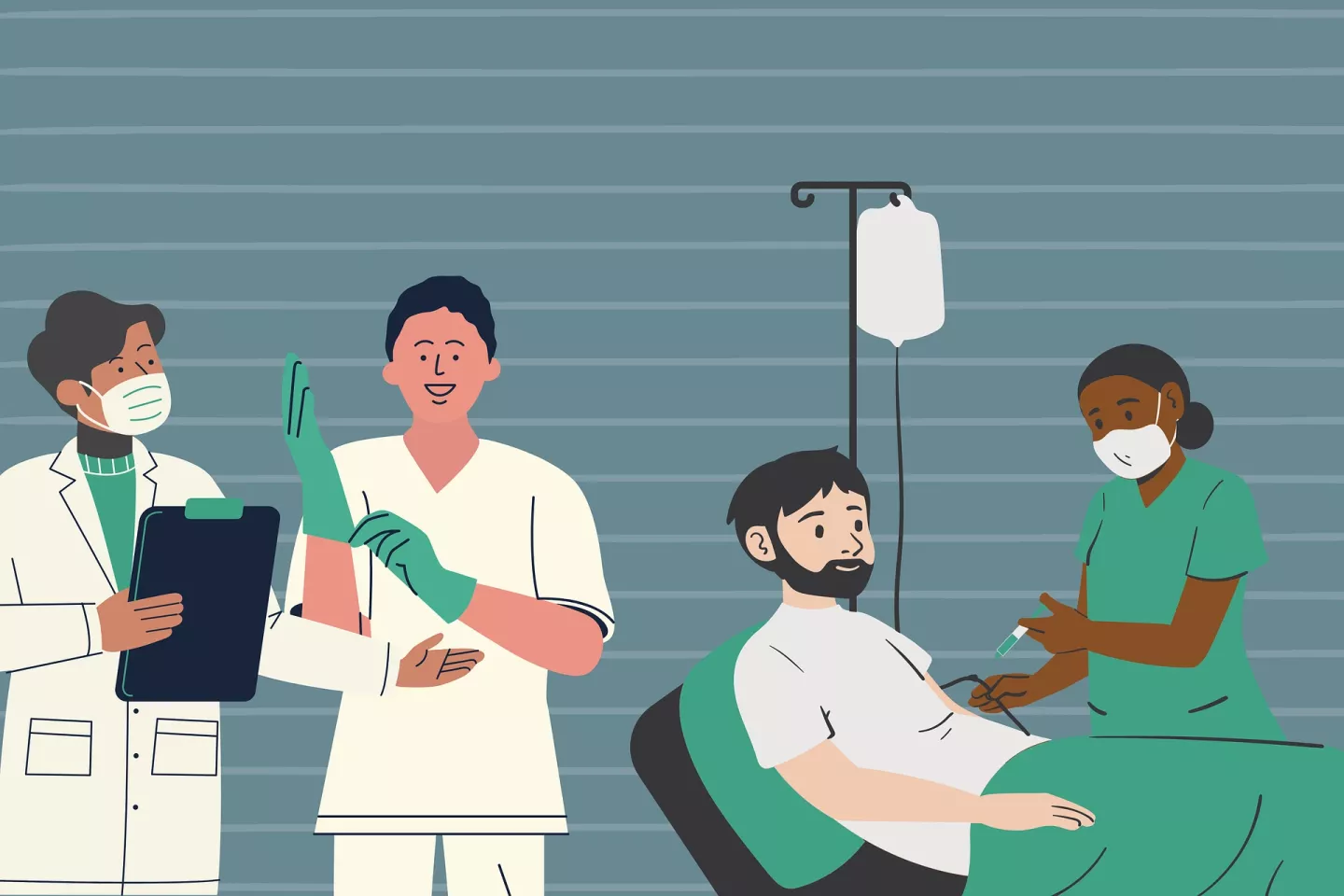Medical Residents Reflecting on Interpersonal Interactions
 A research collaboration between the Health TLN and Catholic Health Services of Long Island (CHSLI) was formed in April 2019 following a presentation by Tom Bigda-Peyton, Vice-President of Organizational Development & Chief Learning Officer at CHSLI. Watch Dr. Bigda-Peyton's April 2019 presentation, "Learning to Adapt: Transition and Transformation at Catholic Health Services of Long Island."
A research collaboration between the Health TLN and Catholic Health Services of Long Island (CHSLI) was formed in April 2019 following a presentation by Tom Bigda-Peyton, Vice-President of Organizational Development & Chief Learning Officer at CHSLI. Watch Dr. Bigda-Peyton's April 2019 presentation, "Learning to Adapt: Transition and Transformation at Catholic Health Services of Long Island."
CHSLI & Health TLN Team
Research Study
Purpose
Both reduced burnout/increased resilience and increased empathy are growing foci of medical education and clinical care. However, both these concepts and the relationship between them are multifaceted. Distinguishing between empathy as a disposition and empathy as a skill and distinguishing between positive and negative empathy are essential to understanding the complex relationship of interpersonal communication and burnout in healthcare professionals. A recent study with medical students suggest that positive empathy may be protective against burnout. However, little is known about the impact of reflecting on positive cues in interpersonal interactions for medical student well-being and burnout.
The goal of this study is to better understand the relationship between interpersonal interactions and medical residents’ experience of burnout and overall well-being. Specifically, we want to experimentally assess whether focusing on positive cues in an interaction will improve the experience of medical residents. Participants may learn strategies for reflecting on interpersonal interactions with patients and colleagues.
Design
At the start of the study, residents will attend a 90 min workshop (instruction and discussion on recognition and response to positive cues in clinical interactions with provider teams and patients). Discussion around what are some positive cues they identify in clinical settings and then unpacking these episodes of practice/representative situations using situation mapping and + Delta framework. Before the workshop begins, participants will consent to being a part of the study and will complete a brief survey. The workshop is required as part of Catholic Health Services resident programming, but participation in the study is voluntary. Following the workshop, residents participate in a three-month study using text-message based ecological momentary assessment to encourage focus on positive interaction cues. The content in the text message content varies by randomization condition. In the control condition, participants are asked to reflect on a specific interaction they had with a patient or colleague in the past few days. In the intervention condition, participants are asked to reflect on a specific POSITIVE interaction they had with a patient or colleague in the past few days. And will be reminded that “Remember thinking about the positive aspects of your interactions may be important for your well-being.”
Participants
Residents participating in Catholic Health Services workshops are asked to participate and consent in the study before the first workshop. Participants are involved in an interventional workshop involving instruction and discussion regarding active recognition of and response to positive cues during clinical interactions with other providers and patients. This intervention seeks to direct resident focus to positive interaction cues. In addition, the 3-month text message intervention helps reinforce this focus on interactions. Participants randomly assigned to the intervention condition have an increased focus on positive cues in their text messages.





